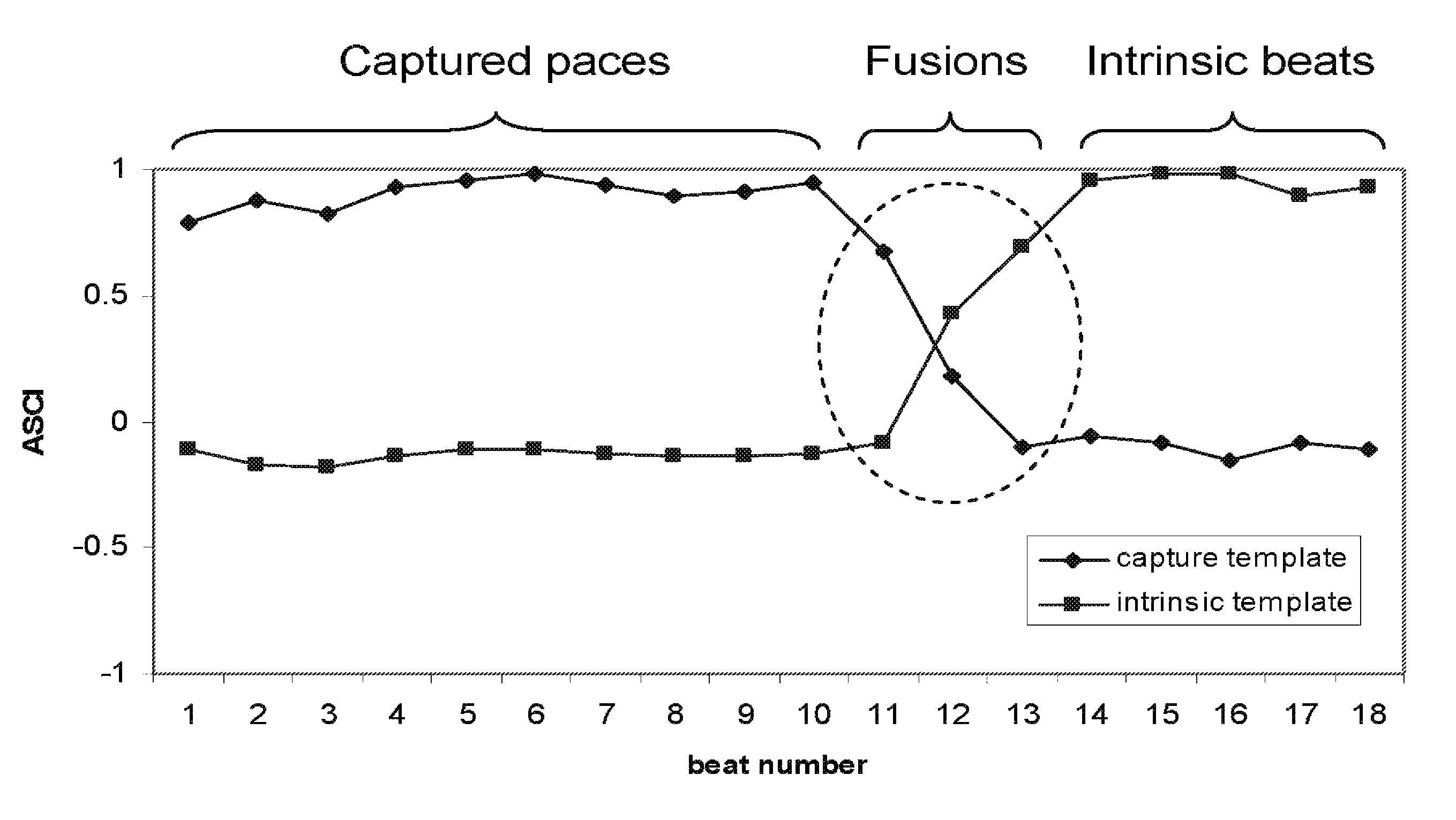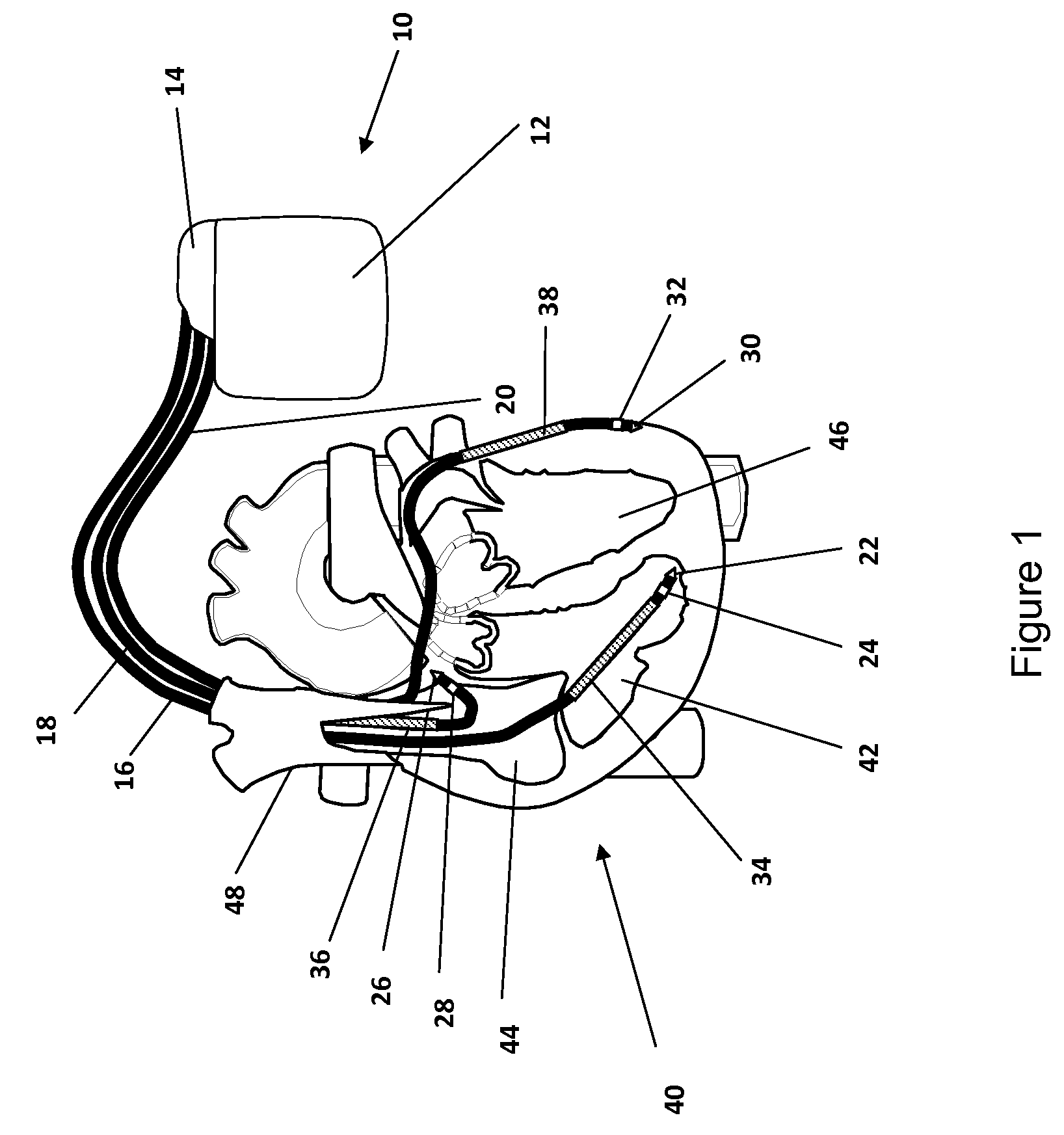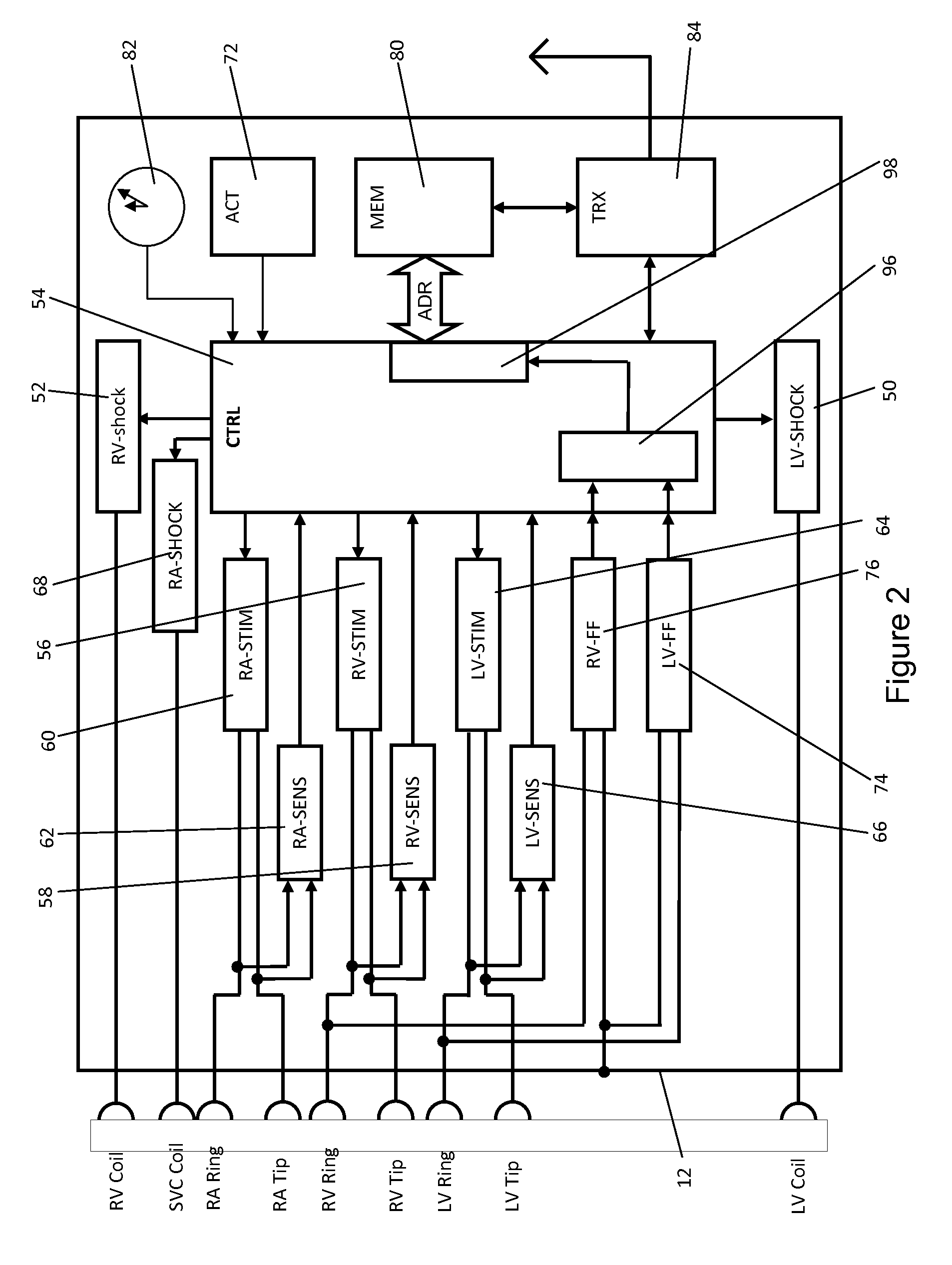Device and method for fusion beat detection
a technology of fusion beat and detection device, which is applied in the field of heart monitoring and/or therapy devices, can solve the problems of ventricular pace, waste of battery power, inefficient myocardial contraction, etc., and achieve the effect of improving fusion beat detection and facilitating cardiac rhythm managemen
- Summary
- Abstract
- Description
- Claims
- Application Information
AI Technical Summary
Benefits of technology
Problems solved by technology
Method used
Image
Examples
Embodiment Construction
[0060]The following description is of the best mode presently contemplated for carrying out at least one embodiment of the invention. This description is not to be taken in a limiting sense, but is made merely for the purpose of describing the general principles of the invention. The scope of the invention should be determined with reference to the claims.
[0061]FIG. 1 shows a schematic illustration of an ICD system. As shown in FIG. 1, the device according to one or more embodiments includes a stimulator 10 including a housing or case 12 and a header 14.
[0062]In at least one embodiment of the invention, the heart stimulator 10 may be connected to three electrode leads, namely a right ventricular electrode lead 16, a right atrial electrode lead 18 and a left ventricular electrode lead 20.
[0063]FIGS. 1 and 2, according to embodiments of the invention, illustrate the pacing system that includes a heart stimulator 10 and the connected leads 16, 18, 20. The right atrial electrode lead 18...
PUM
 Login to View More
Login to View More Abstract
Description
Claims
Application Information
 Login to View More
Login to View More - R&D
- Intellectual Property
- Life Sciences
- Materials
- Tech Scout
- Unparalleled Data Quality
- Higher Quality Content
- 60% Fewer Hallucinations
Browse by: Latest US Patents, China's latest patents, Technical Efficacy Thesaurus, Application Domain, Technology Topic, Popular Technical Reports.
© 2025 PatSnap. All rights reserved.Legal|Privacy policy|Modern Slavery Act Transparency Statement|Sitemap|About US| Contact US: help@patsnap.com



